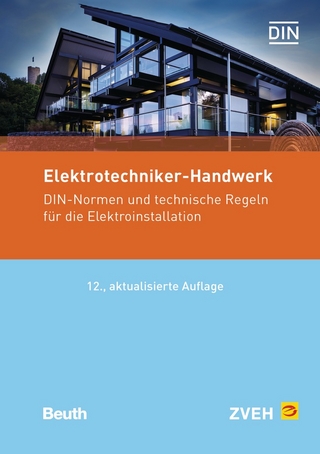
Electrospinning for Advanced Energy Storage Applications
Springer Verlag, Singapore
978-981-15-8846-4 (ISBN)
Neethu T. M. Balakrishnan is currently a graduate student pursuing her Ph.D. thesis with Prof. Raghavan at Material Science and NanoEngineering Laboratory, Department of Polymer Science and Rubber Technology, Cochin University of Science and Technology (CUSAT), India. She completed her Master’s degree in Polymer Science from the Central Institute of Plastic Engineering and Technology (CIPET), Ahmedabad, Gujarat, after obtaining her B.S. degree in Chemistry from the University of Calicut. She has research experience in different fields viz, polymer engineering, materials science, and energy storage devices. Before joining CUSAT, she worked at the Indian Rubber Manufacturers Research Association (IRMRA), Mumbai. Currently, she is working in the field of energy storage devices with more focus on the development of electrospun based polymer gel electrolytes and electrodes for high performance lithium ion batteries in collaboration with Gyeongsang National University, Republic of Korea. She has 25 peer-reviewed publications on lithium ion batteries and several international conference publications to her credits. Her current area of interest includes electrospinning of polymers, carbon nanomaterials, ceramics, metal oxides, and green synthesis of ionic liquids from renewable resources for flexible and bendable energy storage solutions. Dr. Prasanth Raghavan is currently Professor in the Department of Polymer Science and Rubber Technology, Cochin University of Science and Technology (CUSAT), the leader of Materials Science and NanoEngineering Laboratory, CUSAT, and Visiting Professor at School of Materials Science and Energy Conversions, Gyenongsang National University, Republic of Korea. He pursued his Ph.D. from Geyongsang National University, Korea in 2009 under the prestigious Brain Korea (BK21) Fellowship. The focus of his doctorate degree was on the fabrication and investigation of nanoscale fibrous electrolytes for high performanceenergy storage devices from. He completed his B.Tech. and M.Tech. from CUSAT, India. Dr. Raghavan has been awarded with several fellowships such as Brain Korea Fellowship (2007), SAGE Research Foundation Fellowship, Brazil (2009), Estonian Science Foundation Fellowship, European Science Foundation Fellowship (2010), etc. He has developed many products such as high performance breaking parachute, flex wheels for space shuttles, high performance lithium ion batteries for leading portable electronic device and automobile industries. He has a general research interest in polymer synthesis and processing, nanomaterials, green/nanocomposites, and electrospinning. His current research is focused on nanoscale materials and polymer composites for printed and light weight charge storage solutions including high temperature supercapacitors and batteries.
History of Lithium ion batteries and an overview on Energy storage devices.- Electrospinning: The State of art technique for the production of Nanofibers and Nanofibrous membranes for Advanced Engineering Applications.- Electrospun Polyvinylidene difluoride membranes for High performance application in Lithium ion batteries.- Electrospun Nanofibrous Polyvinylidene fluoride -co-hexaflouropropylene based Polymer Gel Electrolytes for Lithium ion batteries.- Electrospun Polyacrylonitrile (PAN) based Polymer Gel Electrolytes for Lithium ion Batteries.- Electrospun based nonwoven 3D fibrous composite polymer electrolytes for high performance lithium ion batteries.- Electrospun Silica-based Polymer Nanocomposite Electrolytes for Lithium-ion Batteries.- Electrospun PVdF and PVdF-co-HFP based blend polymer electrolytes for lithium ion batteries.- Electrospun nanostructured iron oxide carbon composites for high performance lithium ion batteries.- Electrospun nanostructured Iron oxides for high performance lithium ion batteries.- Electrospun Cobalt based Composites as Anodes for Lithium Ion Batteries.- Electrospun Manganese Oxide-based Composites as Anodes for Lithium-ion Batteries.
| Erscheinungsdatum | 04.03.2022 |
|---|---|
| Reihe/Serie | Materials Horizons: From Nature to Nanomaterials |
| Zusatzinfo | 227 Illustrations, color; 64 Illustrations, black and white; XXX, 581 p. 291 illus., 227 illus. in color. |
| Verlagsort | Singapore |
| Sprache | englisch |
| Maße | 155 x 235 mm |
| Themenwelt | Technik ► Elektrotechnik / Energietechnik |
| Technik ► Maschinenbau | |
| Schlagworte | anode materials • Cathode Materials • electrospinning • Energy Storage Devices • HFP Based Electrolytes • lithium ion batteries • nanofibers • polymer electrolytes • PVdF Based Electrolytes |
| ISBN-10 | 981-15-8846-5 / 9811588465 |
| ISBN-13 | 978-981-15-8846-4 / 9789811588464 |
| Zustand | Neuware |
| Haben Sie eine Frage zum Produkt? |
aus dem Bereich


